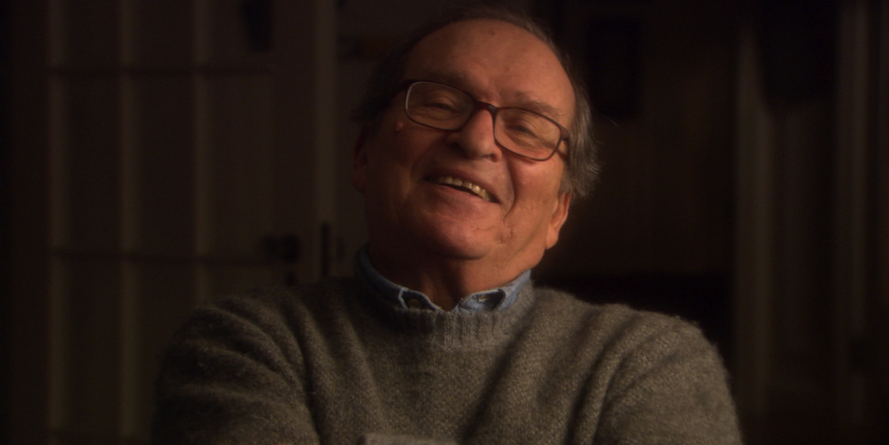‘By Sidney Lumet’ Like his films, the doc “By Sidney Lumet” is deceptively plain and unfussy. The opposite of slick, which is not to say lacking care or skill, it consists entirely of a lengthy, career-spanning interview from 2008 — three years before his death — with one of Hollywood’s most stubbornly thoughtful filmmakers talking, interspersed with relevant clips. There is no music, apart from any that bleeds over from film excerpts. No one but Lumet, wearing a comfy grandfather sweater in an anonymous beige room, appears. RELATED: Review: “Oasis: Supersonic” is, in its weird way, the perfect Oasis documentary This isn’t a case like Noah Baumbach and Jake Paltrow’s “De Palma,” which allows another unlikely Hollywood player to cycle through his CV, film-by-film. Lumet leaves out many (“The Group,” “The Anderson Tapes,” “Equus,” almost everything post-1988). He meanders, sometimes sticking to the timeline, sometime clumping his titles together by theme. He says people often complained his filmography has no clear throughline, that he was too diverse in juggling social dramas, popcorn thrillers, even a garish musical (“The Wiz”). But Lumet and “By Sidney Lumet” argue that the connecting tissue is him, his sometimes “invisible” style and his distinct worldview. It was also a need to stay busy. The son of a star actor of the 1930s NYC Yiddish theater, Baruch Lumet, the filmmaker quotes his father’s gospel of having a “lack of self-indulgence in work.” Lumet the younger took that to heart, going from a boy actor absorbing the industry to a TV workhorse, who in the mid-’50s, would crank out 60 to 70 shows a year. He learned to work fast but efficiently, often ascetically: One of his stints on the Walter Cronkite-led educational series “You Are There” told the story of the Salem Witch Trials by adhering strictly to the original court transcripts. His first Hollywood film was, naturally, a play adaptation: He took Reginald Rose’s chatty one-room instant classic “12 Angry Men” and made it subtly expressionistic; the lighting becomes darker, an extension of the tension emitting from the battling jurors like stink lines. You could also watch the movie without noticing that. He learned to impose himself on material without distracting viewers’ attention from the actors or the material. He didn’t even choose projects because of their subjects. He had no interest in the judicial system when making “12 Angry Men,” and was not a radical despite tackling “Daniel” (about Julius and Ethel Rosenberg) and “Running on Empty” (about aging activists). He admits to not knowing what he thought about Treat Williams’ snitch of a protagonist from “Prince of the City” until he saw a rough cut. “Oh,” he remembers realizing, “I made him a hero.” That’s not to say he was a mere technician. He cared about subjects as they speak to a bigger picture. He says he was drawn to “Serpico” because it spoke to systems that always conspire against us, not specifically due to alarm over police corruption. Looking over his six-decade filmography, we can see someone that can be defined by a simple phrase: That when it comes to sussing out meaning in the world, his approach, at least initially, is, “I don’t know.” That’s not to say he doesn’t ever know. He says that while he doesn’t want to force a moral message on his movies, he also thinks that if he does his job the viewer will intuit a moral message by the end. And even that it’s complicated. Lumet famously wrote what amounts to the manual for being a film director, succinctly titled “Making Movies” (which he wrote while toiling, as it were, on one of his least loved works: “A Stranger Among Us,” which paired Melanie Griffith with the Hassidic community). There’s some crossover between that book and this interview, but here Lumet more openly discusses how he approaches themes and ideas. He rarely talks technique. The more experimental flourishes in some of his films — like the Resnais-esque jumping between present day and memory in 1964’s “The Pawnbroker” — were organic expressions, not him swiping from others. Lumet’s also more philosophical, and quick to swat away anyone who thinks to read too much autobiography in his films. When he speaks of his demanding father, filmmaker Nancy Buirski’s cues up the conflicted partriarchs in “A Long Day’s Journey Into Night,” “Running on Empty” and “Before the Devil Knows Your Dead.” But we’re supposed to compare and contrast, not see them as Lumet openly wrestling with his demons. Along similar lines, we’re not supposed to see these fathers as stand-ins for Lumet himself, also a workaholic, and one who admits he never asked his children if they saw him as too busy or emotionally distant. Coming away from “By Sidney Lumet,” you see a master filmmaker as he’d likely have presented himself: a man as complex as his movies and the worlds they explored.
Director: Nancy Buirski
Genre: Documentary
Rating: NR
3 (out of 5) Globes
‘By Sidney Lumet’ is an appropriately no-frills look at a great director

Jade Albert
Follow Matt Prigge on Twitter @mattprigge


















